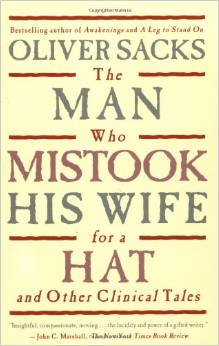 Imagine a situation where you “lose it.” You get angry, your blood boils, you may yell at the person who has occasioned this anger or you may throw something or swear in vain. This feeling is no stranger to me. Sometimes, a situation catches us off guard and we react instead of meeting it with equanimity.
Imagine a situation where you “lose it.” You get angry, your blood boils, you may yell at the person who has occasioned this anger or you may throw something or swear in vain. This feeling is no stranger to me. Sometimes, a situation catches us off guard and we react instead of meeting it with equanimity.
At other times, the situation simply outstrips our ability to cope with whatever is happening. The storyline is too compelling and we react. We may be tired, irritable, or haven’t been spending enough time in meditation lately and this makes us more likely to react.
If you reading this blog, you are interested in mindfulness and interested, if not already committed, to living your life with less reactivity. This is a noble quest, one that most people don’t undertake.
Think back to the last time you got angry in a way that you regretted. How did you receive this behavior? Did you add rancor, recrimination, and revulsion? Chances are you did, since anger sometime gang tackles us. It’s one thing to do something unskillful by erupting in anger, it’s another thing on top of that to get angry at ourselves. The proverbial adding insult to injury.
Instead of beating yourself up, consider the three C’s of self-forgiveness: compassion, clemency, and credit.
Compassion: There is a reason why you reacted the way you did. The conditioning event or events may stretch all the way back into childhood and if you were omniscient you could figure out what all these conditionings were. Sufficient for now, it is important to know that these feelings don’t arise from weakness but from being wounded. They are a vestige of trauma one that has not been fully metabolized and is still active and vulnerable to trigger. If a friend or a child were afflicted like this, you wouldn’t chide them, you’d be compassionate. You can do the same thing for yoruself. It’s not letting yourself off the hook; it’s being realistic about your current capacities.
Clemency: Once a modicum of compassion can be offered to yourself (or at least stop beating yourself up), you can move on to clemency. In the most general sense, we are human beings and thereby fallible. We are not perfect, even though we may insist that we should be. Clemency is a recognition of this imperfection. Even under the best of circumstances when we are giving our best effort towards any goal, we are going to fall short at times. Here, too, clemency is not letting yourself off the hook. Rather, it is putting yourself in a broader context, one that is more based in reason than the idealization of perfection.
Credit: We are all subject to a negativity bias. This tendency to emphasize the negative and ignore the positive, may have been adaptive in the evolution of the species, but it can have a detrimental effect on our well being. If you are committed to a path of change, there are, no doubt, many examples that you can find where you have been successful containing your anger. These may go unnoticed. You may not be giving yourself credit for all the small victories on the path to change but very willing to demolish yourself for one meltdown. Reflect on all of your successes. Write them down and keep a log handy. You may have to go out of your way to emphasize the positive. This has its own benefits beyond granting self-forgiveness.
The Three C’s of self-forgiveness work together to move us towards a softer treatment of our imperfections. It may not be enough to just emphasize compassion, because we may not feel worthy of that compassion. But when put in the context of our history, it may be easier to grant it. We are fallible both in general and specific ways. We each have our own collection of stories with countless conditionings, beliefs, and rules. It takes a long time and a lot of work to extricate ourselves from these and there will be “failures” along the way. When we can give ourselves credit for the successes, it is easier to see our progress along the path and also easier to generate compassion and clemency.
The next time you do something unskillful, see if you can limit the damage by not beating yourself up. Then, see if you can apply the Three C’s of Self-Forgiveness. By doing so, you can begin anew in the next moment with equanimity and even a modicum of love. You can, in the words of poet Sam Hamill in his poem “What the Water Knows”, realize, “There’s nothing I couldn’t forgive.”

